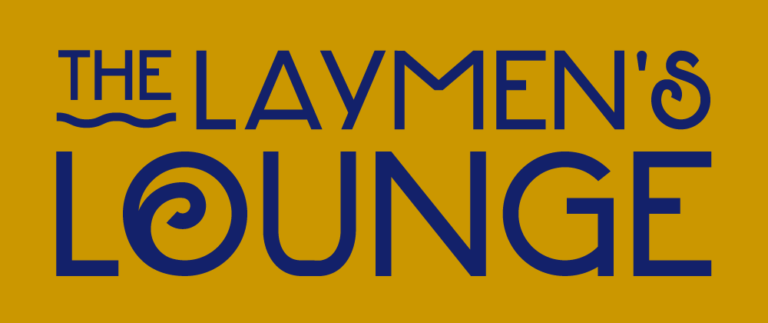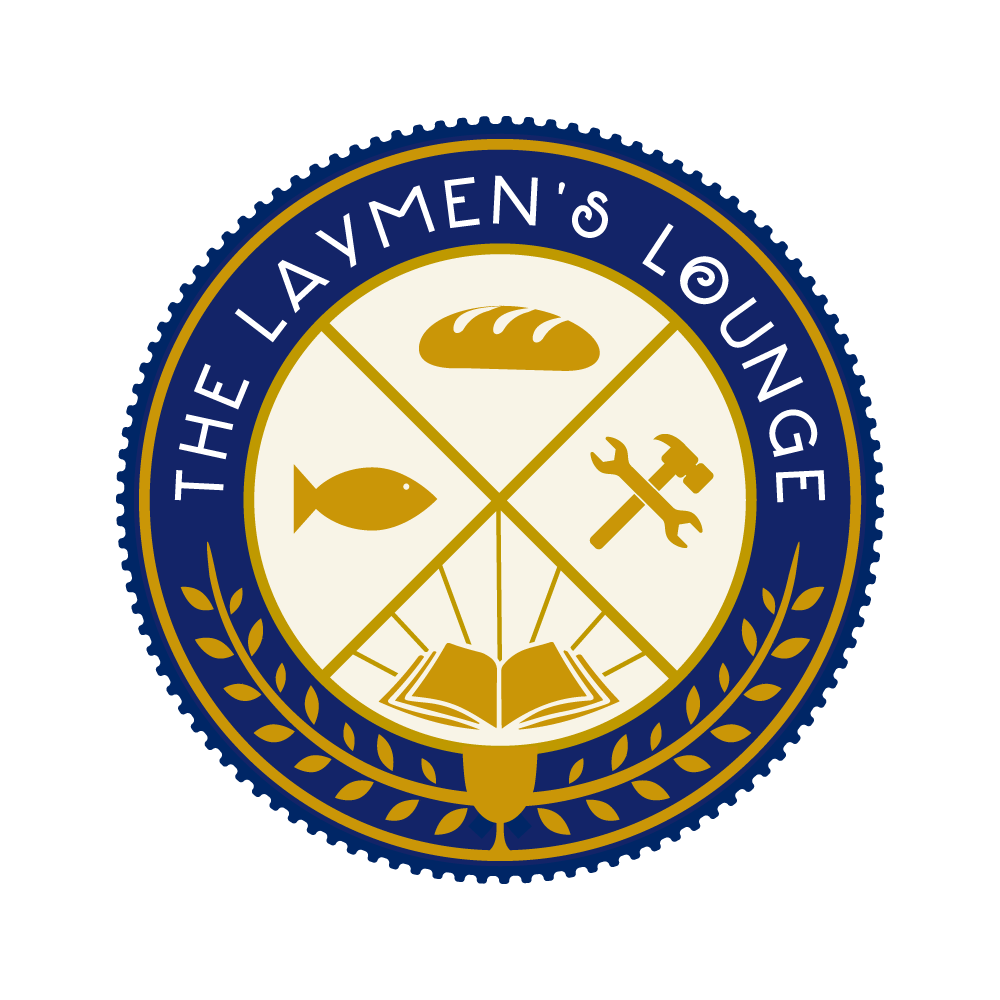by Steve Bishop
Neo-Calvinism is the view that God’s sovereignty extends over all things – and that includes scholarship, politics, art, science, mathematics, business, geography, economics, media, law, literature … as well as family, ethics, church and theology.
The term neo-Calvinism was coined in 1897 by one of the first lecturers at the VU Universiteit Amsterdam, Anne Anema (1872-1966). The term originally had negative connotations, but it stuck and became a convenient term to describe the movement. Neo-Calvinism had its origins in the Netherlands in the nineteenth century. Abraham Kuyper (1837-1920) and Herman Bavinck (1854-1921) were the main initiators – though some credit must also go to Kuyper’s mentor Guillaume Groen van Prinsterer (1801-1876)
This period in history was a turbulent one. The French Revolution began in 1789 – a revolutionary spirit was spreading through Europe. It was a time of shifting worldviews Marx (1818-1883) published his Communist manifesto in 1848 and in 1859 Charles Darwin published his On the Origin of Species. The death of Nietzsche in 1900 marked a change in attitude within Dutch culture – a new form of atheism was emerging that no longer accepted a Christian morality. Science and technology were expected to make the Christian religion superfluous, there was also an increase of interest in new religions. Both Kuyper and Bavinck responded to these changes with a desire to show that Calvinism was the only consistent and coherent world and life view. This Christian world and life view is characterised by creation, fall and redemption.
Kuyperians – followers of Kuyper’s views – would regard themselves as neo-Calvinists and many, but not necessarily all, neo-Calvinists would be Kuyperian. Some of the characteristics of the neo-Calvinist standpoint would include the following:
- The sovereignty of God over every sphere and aspect of creation
- The idea that all of life is to be redeemed
- It is world-affirming and world-transformative, not world-denying
- The importance of God’s cultural mandate (Genesis 1:26ff)
- Creation, fall and redemption
- A rejection of dualism
- Common grace
- The antithesis
- The role of worldviews
- The role of God’s laws or creational ordinances.
- Sphere sovereignty
It should be noted that these characteristics are not a straitjacket for all neo-Calvinists – the list should not be taken to presume that neo-Calvinism is a monolithic movement. Any living movement is ‘elastic’ and there is debate over boundaries. For example, Klaas Schilder objected to the doctrine of common grace and Herman Bavinck was less enthused by the antithesis than Kuyper.
Neo-Calvinism is a development of Calvinism
Both Kuyper and Bavinck were thorough-going Calvinists and held to all the main five points of Calvinism. The reason why they were described as neo-Calvinists is that they developed and built on Calvin’s views, as Kuyper wrote in his Lectures of Calvinism:
not to copy the past, as if Calvinism were a petrifaction, but to go back to the living root of the Calvinist plant, to clean and to water it, and so to cause it to bud and to blossom once more, now fully in accordance with our actual life in these modern times, and with the demands of the times to come.
Kuyper saw Calvinism as a world-and-life system rather than something limited to church circles. He opened up Calvinism from being human-centred, and sin-centred, to being creation-centred. Neo-Calvinism broadened out the scope of the gospel as Bavinck, in The Catholicity of Christianity and the Church proclaimed:
The gospel is a joyful tiding not only for the individual person but also for humanity, for the family, for society, for the state, for art and science, for the entire cosmos, for the whole groaning creation.
Neo-Calvinism is not New Calvinism.
Neo-Calvinism is not to be confused with New Calvinism (see the table below). Neo-Calvinism dates back to the nineteenth century with Kuyper and Bavinck; New Calvinism is a modern twenty-first-century phenomenon, associated with John Piper, Mark Driscoll, Albert Mohler, C.J. Mahaney, and others in the United States.
Neo-Calvinism rejects any form of sacred/ secular or nature/ grace divide
A diagram from “borrowed” Wolter’s book Creation Regained may help illustrate the problem with a sacred/ secular divide. If we imagine that this box represents creation in all its variety.

There are at least two ways we can show the opposition between the kingdom of God and the kingdom of the world/ Satan. The first is to draw the line horizontally separating the church from the rest of creation – this is a form of sacred/ secular dualism. We could also draw the line vertically – this is the neo-Calvinist position. Nothing is secular but sin. It is a rejection of any sacred/ secular divide.

The vertical line represents what neo-Calvinists call the antithesis – there is an opposition between the spirit and flesh, between the kingdom of God and of darkness. A conflict between thoughts and actions that are done according to the laws and norms of God for creation as opposed to a development that is not in line with what God intends.
Creation has a structure and a direction. The structure of creation is unaffected by the fall – the creation ordinances, norms and laws are still present in reality; what has changed though is the direction in which they are taken. The direction can be a positive one, in obedience to God (redemptive); or a negative one, in disobedience to God.
Nature and grace
The neo-Calvinist view of nature and grace is not that grace is added to nature or that grace destroys nature, or that grace is of a higher order than nature but rather that grace affirms and restores nature.
All areas of life need the gospel
Humans as the image-bearers of God are to unfold and develop the creation in the way God intended, according to his laws and norms – this is the cultural mandate (Genesis 1:26-28 and Genesis 2:15). This “subdue, rule, till and keep” is a command to develop culture, to unfold potentialities latent in the good cosmos God created. It must express Christ’s kingdom everywhere; no area is exempt. It implies that the good creation can be opened up, given added value; the garden can become a strikingly beautiful city.
At creation, God gave ordinances, laws and norms for the development of creation. Law in neo-Calvinist perspective is not limited to the Ten Commandments – there are laws for all areas of life.
Common grace
Through common grace shown to creation as creation, that dominion over nature mandated before the fall can be realised after it. Common grace has a twofold effect: it curbs the effects of sin and restrains the deeds of fallen humanity; it also upholds the ordinances of creation and provides the basis for Christian cultural involvement; common grace provides the foundation for culture. It also explains why many non-Christians have produced at times inspiring and insightful works. The cultural mandate to develop and fill the earth was not rescinded after the fall into sin.
Sphere sovereignty
The notion that all areas of life are to be redeemed does not mean, however, a Christianisation of society or the desire to establish a theocracy. Kuyper’s notion of sphere sovereignty mitigates against this.
Kuyper maintained that there are different independent spheres within creation, but God is sovereign over them all. These spheres (such as the state, church, family, art, business and so forth) should remain independent in their own sphere. No one sphere should encroach on another. The State, for example, should not then stipulate how the family should be run. The role of the state is to ensure all the other spheres run smoothly. Likewise, the church should not specify how a school should be managed and the church should not be run as a business. Each of the spheres have their own God-given norms, ordinances as well as their own God-given roles and tasks. It also means that different worldviews could have their own space within society. This approach is often called principled pluralism.
Summary
Neo-Calvinist perspective can be summed up as creation, fall and redemption through Jesus Christ in the communion of the Holy Spirit.
Creation. God created a good creation that is to be unfolded and developed by humans as the image-bearers of God in response to the cultural mandate (Gen1:26-28).
Fall. The fall disrupted not the structures but the direction of creation. Developing and unfolding the creation could now be done according to the laws and norms of God or against them.
Redemption. Christ came to redeem the whole of his creation (Col 1:18). He will come again to restore his good creation on a new and renewed earth (Rev 21). The transformation of culture is only possible because of what Christ has done and through the work of the Holy Spirit.
Neo-Calvinism is the good news that the gospel is for the “whole groaning creation’.
Proto-neo-Calvinists
- Augustine
- John Calvin
- Johannes Althuisius (1557-1638)
- Willem Bilderdijk (1756-1831)
- Isaac da Costa (1798-1860)
- Guillaume Groen van Prinsterer (1801-1876)
Neo-Calvinists
- Abraham Kuyper (1837-1920)
- Herman Bavinck (1854-1921)
- Johannes Groen (1865-1924)
- Klaas Schilder (1890-1952)
- Nicholas M. Steffens (1839-1912)
- Henry Dosker (1855-1926)
- Klaas Schoolland (1851-1938)
- Jan Van Lonkhuyzen (1873-1942)
- August Lecerf (1872-1943)
- Henry Beets (1869-1947)
- Gerhard Vos (1862-1949)
- S.G. de Graaf (1889-1955)
- Louis Berkhof (1873-1957)
- Edward J. Tanis (1887-1958)
- B.K. (Barend Klaas) Kuiper (1877-1961)
- Clarence Bouma (1891-1962)
- H. Henry Meeter (1886-1963)
- Jacob T. Hoogstra (1900-1979)
- Henry Stob (1908-1996)
Herman Dooyeweerd (1894-1977) with his brother-in-law D.H.Th. Vollenhoven (1892-1978) took many of Kuyper’s insights and developed them into a Christian philosophy. Though not all neo-Calvinists adopted this perspective. Neo-Calvinists who accept some form of a Dooyeweerd-Vollenhoven Christian philosophy are usually described by the adjective Reformational (many of these are to be found on www.allofliferedeemed.co.uk)
Non-Reformational neo-Calvinists would include:
- Valentin Hepp (1879-1950)
- Klaas Schilder (1890-1952)
- William Masselink (1897-1973)
- Cornelius Van Til (1895-1987)
- R.J. (Rousas John) Rushdoony (1916-2001)
- Alvin Plantinga (b. 1932)
- Nicholas Wolterstorff (b. 1932)

Key neo-Calvinist books
Primary sources
- Guillaume Groen van Prinsterer 2019. Unbelief and Revolution. Bellingham, WA:Lexham Press.
- Abraham Kuyper 1933. Lectures on Calvinism. Grand Rapids: Eerdmans.
- Herman Bavinck 2019. Christian Worldview. Wheaton, Ill:Crossway.
- August Lecerf 1949. An Introduction to Reformed Dogmatics. Lutterworth Press.
- Herman Dooyeweerd. 1979. Roots of Western Culture. Toronto, ON: Wedge Publishing Foundation.
- D.H.Th. Vollenhoven 2005. Introduction to Philosophy. Sioux Center, IO: Dordt Press.
- Klaas Schilder 2016. Christ and Culture. Lucerna: CRTS Publications.
Secondary sources
- Bruce Ashford 2015. Every Square Inch: An Introduction to Cultural Engagement for Christians. Bellingham, WA:Lexham Press.
- Craig G. Bartholomew 2017. Contours of the Kuyperian Tradition: A Systematic Introduction. Downers Grove, IL: IVP Academic.
- Steve Bishop and John Kok 2013. On Kuyper: A Collection of Readings on the Life, Work & Legacy of Abraham Kuyper. Sioux Center, IO: Dordt Press.
- James Bratt 2013. Abraham Kuyper: Modern Calvinist, Christian Democrat. Grand Rapids: Eerdmans.
- Roy A. Clouser 2005. The Myth of Religious Neutrality (2nd edn). Note Dame: University of Notre Dame Press.
- James Eglinton 2019. Herman Bavinck: A Critical Biography. Baker Academic.
- J. Geertsema (ed.) 1995. Always Obedient: Essays on the Teachings of Dr. Klaas Schilder. Philipsburg, NJ: P&R Publishing.
- Michael W. Goheen and Craig G. Bartholomew 2008. Living at the Crossroads: An Introduction to Christian Worldview. Grand Rapids, MI: Baker Academic.
- Robert D. Knudsen 2009. Roots and Branches: The Quest for Meaning and Truth in Modern Thought. (edited by Donald Knudsen) Grand Rapids: Paideia Press.
- Richard Mouw 2004. Calvinism in the Las Vegas Airport: Making Connections in Today’s World. Grand Rapids: Zondervan.
- Danny E. Olinger (ed.) 2005. Geerhardus Vos Anthology: Biblical and Theological Insights Alphabetically Arranged. Presbyterian & Reformed.
- Willem Ouweneel 2014. Wisdom for Thinkers: An Introduction to Christian Philosophy. Jordan Station, ON: Paideia Press.
- H.E. Runner 2016. Walking in the way of the Word: The Collected Writings of H. Evan Runner. Grand Rapids: Paideia Press.
- D.F.M. Strauss 2021. The Philosophy of Herman Dooyeweerd. Jordan Station, ON: Paideia Press.
- Andre Troost 2012. What is Reformational Philosophy? An Introduction to the Cosmonomic Philosophy of Herman Dooyeweerd. Jordan Station, ON: Paideia Press.
- Brian J. Walsh and J. Richard Middleton 1984. A Transforming Vision: Shaping a Christian World View Downers Grove, IL: IVP.
- Al Wolters 1985. Creation Regained: A Biblical Basis for a Reformational Worldview. Grand Rapids: Eerdmans.
Steve Bishop is an independent researcher based in Wales, UK. He maintains the neo-Calvinist website www.allofliferedeemed.co.uk. He is a trustee of Thinking Faith Network. He earned his doctorate at the North-West University, Potchefstroom, South Africa (2019), supervised by Renato Coletto. He is the co-editor of On Kuyper: A Collection of Readings on the Life, Work & Legacy of Abraham Kuyper (Dordt Press, 2013).
He has had articles on Kuyperian neo-Calvinism published in Foundations, Koers, Pro Rege, and the Journal for Christian Scholarship.



I discovered that I’m a Neo Calvinist In discussions with Calvinist theologians on Not the Bee. I was surprised to learn that my take on “Calvinism,” largely absorbed during my time in the Christian school movement, was so at odds with the theologians who apparently believe that “election” is a heavenly lottery. Spent a week at the Imstitute for Christian Studies and read many of thr authors you cite and allude to.
My fiest exposure to this way of thinking was Anglican Harry Blamires’ The Christian Mind.
I have been trying to understand if the Neo-Calvinists believe in the doctrine of Election, the “Heavenly Lottery.” Do they?